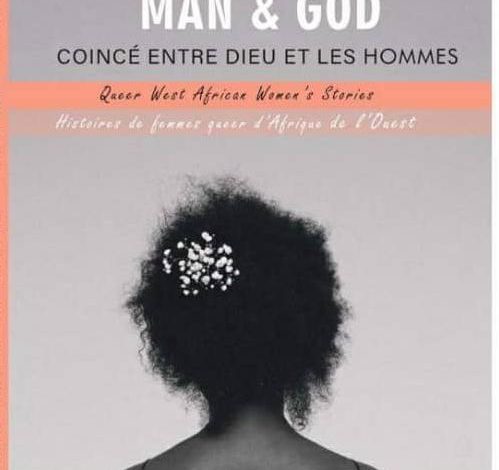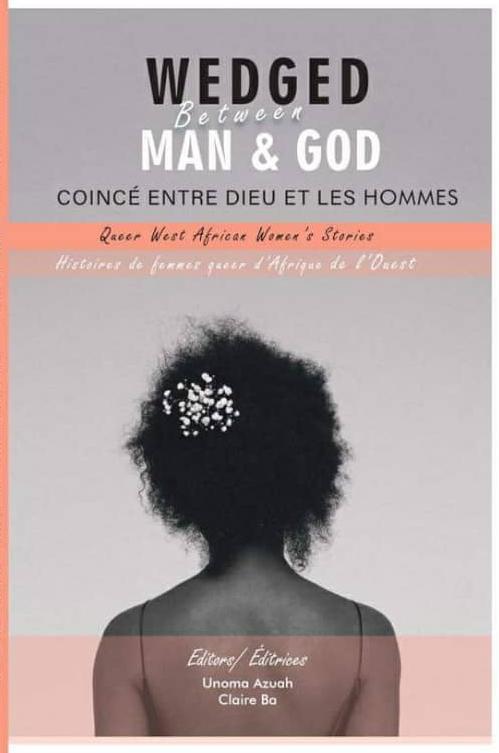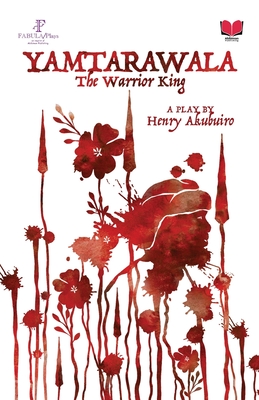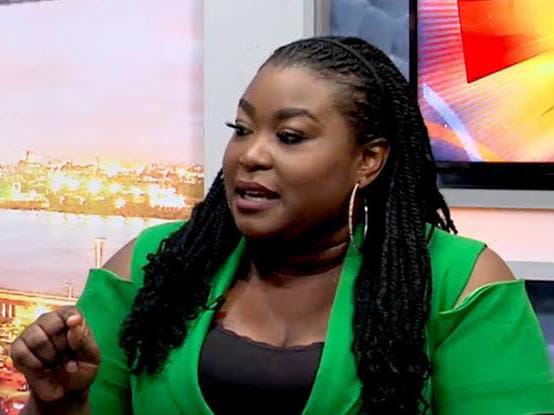Notes from the closet in ‘Wedged Between Man and God: Queer West African Women’s Stories’

By Uduma Kalu
THE book, Wedged Between Man and God: Queer West African Women’s Stories is a 346-page collection of non-fiction stories. It’s divided into two language sections, with English section having 159 pages, while the French has 187 pages. The French is a translation of the English. The English is also a translation of the French, as there are French stories translated into English and French into English, too. These translations shoot the book to 346 pages.
The book is actually a declaration, a campaign. It begins thus: “Queer people all over the world are facing marginalization. Although the works of LGBTQ activists are forcing the West to review laws that stifle the freedom of queer people, this is not happening in West Africa. In most West African countries, queer people live in constant fear, abused by both public and private agencies that blatantly refuse to acknowledge their right to live and love freely because of homophobia.” They are therefore forced into their closets.
Really, a lot has happened since 1997 when I discovered what I presumed to be the first lesbian writing coming out of some selected women writers in Nigeria. That publication, ran by the Sunday Vanguard in 1997, was entitled The Lesbian Voice in Present Nigerian Literature which featured poems and short stories by Unoma Azuah, Lola Shoneyin, Temitayo Abioye, Angela Agali, etc. That was the first time that kind of literary genre made its debut in the country. It caught some attention in literary circles and was analysed in several literary journals at home and abroad. Some scholars such as Prof. Jane Bryce of the University of West Indies and now Prof. Unoma Azuah had gone ahead to make further use of the work. Azuah herself would later travel to the U.S. and her writing life had blossomed there so much that she has openly come out to declare herself a lesbian. She has been campaigning for gay rights all these years. She also has a memoir on her growing up years as a lesbian in Nigeria. Some of the other writers featured in The Lesbian Voice in Present Nigerian Literature that I know are married and have children.
Wedged Between Man and God therefore continues Azuah’s campaign for gay rights in Nigeria, Africa and elsewhere.
The book, edited by Unoma Azuah and Claire Ba, is a compilation of 23 true life stories by 23 people who see themselves as lesbians or simply queer people. Actually, identity is fluid here. Who is a man or woman or both here is not definite. And this is the problem between the queer people and society. The writers are from eight West African countries – Nigeria, Ghana, Côte d’Ivoire, Liberia, Benin Republic, Burkina Faso, Senegal and Mali. There is a foreword also by a Ghanaian feminist writer.
One common link that ropes the writers of this nonfiction collection together is fear – the fear of being persecuted by society, state and religion. Perhaps, that is what informs the title of this book – Wedged between man and God. The gay person is squeezed to death by laws of man and God that snuff the life out of him or her. The result is an escape of these people into the underground which they call closet. They are ordinary people living among ordinary people in a society hostile to their sexual preferences. And because they are a helpless lot, they are armed only by their determination. But even that is not enough. So, they are forced into their closets. From these closets, they write about their experiences as queer people.
But then the stories do not show a productive closure. That is, the reproductive benefit of being gay at the end of the book – in fact, association with male counterparts by some lesbians is scorned at; however, some of them seem desirous to opt out of the closet and have a marriage with men and have children. At least that is what the story ‘Eye’ by Azuah seems to suggest. But overall, Wedged Between Man and God is a story of deviance, a stubborn spirit, an avowal to stick to that decision with the same community of homosexuals or queer people. The book seems to be a cry for freedom to an outsider by wailing about the excruciating agony that West African society inflicts on queer people. This stubborn streak seems to be a defining trait in the queer person’s life. We first saw this in the works of James Baldwin, also a known homosexual when he said, “You have to decide who you are, and force the world to deal with you, not with its ideas of you.” Oscar Wilde, an English playwright, would not come out to declare himself a homosexual, but subtly made comments to show who he was.
The gay campaign has gained roots over the years, becoming a hurricane during the reign of President Barack Obama. The court rulings in the U.S. sent waves to Europe, and led to the legalisation of same-sex marriages throughout the West, including the Oceania. The East, including Russia, Africa and South America still resist this sexual preference.

In Africa, only South Africa has okayed same-sex marriage. Four others from the same region have decriminalised it – Angola, Mozambique, Lesotho, Seychelles, and Botswana. Even then, it is highly frowned at by many Africans. President Goodluck Jonathan writes in his book that he was booted out of power simply because he refused to approve of Obama’s instruction to okay gay rights in Nigeria. Jonathan had instead assented to a bill outlawing gay rights and same-sex marriage in the country, to the chagrin of the gay or queer community across the world. Uganda was recently denied loans because it is opposed to gay rights.
It is important to understand why some people and countries are opposed to gay rights.
Because it was not just Nigeria that the west threatened but all of Africa. The West tried to muscle Africa to okay gay rights with sanctions on countries that did not approve gay rights. Presently, the muscling continues and with a growing economic weakening of the continent, a gradual acceptance of the western condition may triumph. That is why gay rights in Africa can be said to be gaining ground. Even though there is a law against it, the practice is swelling going by the reports in this book. It is not accepted. Not just by the law but by society.
Discourse on gay rights in Africa is contentious. Chimamanda Ngozi Adichie and Azuah are noted for saying that lesbianism has always existed in Africa. While Adichie use the woman-to-woman marriage among the Igbo to support her claim, Azuah uses the example of the “dan daudis” in northern Nigeria as an example of how “queer lives” have always existed in Africa. However, Adichie has been made to understand that the cultural woman-to-woman marriage in Igboland did not result in sexual intercourse or practice. Rather, a childless wife or widow could get a woman, marry her into her husband’s home, get her impregnated by men and the child belonged to her husband. They did not live together as sexual partners. She was not even a husband but fondly referred to as her husband, as she may be said to have procured her. Azuah’s ‘dan daudi’ assumption of gay existence in Africa is actually a foreign practice with a Muslim origin. It is yet to be established that there was the existence of gays in Africa prior to Islamic and Christian invasion of Africa. In fact, to make sure there was nothing like homosexuals in Africa, ancient Egypt made laws outlawing homosexuality in its ‘Ma’at’ law.
But a new culture is in the land. And new interpretations are here. Narratives to defend this new culture are also here. And they come in several ways including governments, NGOs, funders, schools, etc. And it is growing. It needs a foundation for this growing narrative. As Azuah notes in the introduction, “This book immortalises the stories of queer women in West Africa and adds to the documentation they lack because African culture historically has been mostly oral. Had there been more historic documentation of queer women’s lives in West Africa and Africa in general, homophobia may not have been an issue. Today, there is power in being seen and heard. So, we hope that this book offers queer women in West Africa a platform to be seen and heard in their struggle for an egalitarian society that recognises their strength and talents and embraces diversity, respects queer people and acknowledges their full humanity.” This quote is the manifesto of this book. As Ghana’s Nana Darkoa Sekyiamah declares also in the foreword, the stories portray ‘the lived experiences of women whose sexualities do not conform to a limiting heterosexual norm.’ Nana notes that the stories, in the light of increasing threats of criminalisation of queer Africans – lesbians, bi-sexual, and trans-women, the book shows that, ‘we exist, have always existed and will continue, not just to merely live but thrive in spite of the hostile contexts that many of us continue to navigate.”
The writers, in spite of threats and persecution they face, are all united by a strong faith and hope that they will triumph. Well, the book does not show those that succumbed. It is not what it set out to do. It set out with the Baldwinian declaration to force the world to accept its identity. Some of the stories are well crafted while some are confessional, without much effort. Works such as ‘Growing Wings’ by Olaedo Obinze, with her strong use of the wings symbolism and flashback, act as a foreshadow to the whole collection. But the real deal can be gleaned in the words, ‘I feel my feathers thicken. I play with my wings. I too, am beginning to grow wings.’ Queer people are growing wings… Symbolism seems to open the stories and end them. While the stories open with wings, they close with Azuah’s ‘Eyes,’ a kind of mirror or message depicting the inner narrative which is caused by fear.
This sets the tone for the rest of the stories…a stubborn will. There is no other subject that spices up the stories, except the creativity involved in some of them. But the most intriguing in them is the honest, confessional mode aimed at eliciting pity and acceptance. Very few of them, if any, are ready to renounce their choice but would like others to accept them as they are. All the stories state the reason why they are queer. Some allege it is biological while many of them suggest peer influence.
One thing this book brings out is the pretense ravaging society. And it exists because of social impositions. The closet is the only true place. A devout Christian or Muslim is actually a rogue or a person in the closet. Only those that are determined and fearless live truly their lives. They are stubborn. They rebel against everything – family, society, religion, state, tradition, etc. Because all these are against them, they are loyal only to themselves. They are declarative. An attempt to stop them is opposed and looked upon as oppressive and scoffed at. They don’t listen to any other voice. In fact, homophobia has now been elevated to the level of racism in their vocabulary.
Really, there are new vocabularies here. And they are related to the new wave of LGBTQI.
Why don’t they welcome opposing voices, even though they may feel guilty? It is something some of them cannot control, they write. Then why do some detour like Habila and Abike? The difference here seems to be the level of freedom given to the child. Habila and Abike are Muslims and obedient to their families. But Eiphee Ize’s ‘Let’s Pray’ shows a defiant version, due to freedom she enjoyed as a youth. In a way, the teenage factor determines the sexual orientation of these people.
Additionally, the stories are like diaries. There are also the religious bodies – Christianity and Islam. Once the parents discover their daughters are lesbians, they express shock, violence and then drag them to their religions for exorcism. But usually, nothing happens as the people know they are not demon-possessed. The religions are cruel to them. It is no wonder that almost all of the queers are irreligious or have little faith in God. So, neither man nor God can change them.
The state comes in here when everything fails. It sends its apparatuses to disrupt their meetings. This has happened in Ghana, Benin Republic and Nigeria. While there is no reported case of state oppression in other countries in the book, though they actually exist, state attention on homosexuals is far removed. It is usually the society that makes life difficult for them.
The stories here show resilient and hopeful people. The question at the end of Wedged Between Man and God really is, what do they want? They all say they want to be free to love. They want freedom. That is the problem. How can society bend for it when it considers homosexuality a taboo? Must all rights be guaranteed? And what is even a right? Is lesbian suppression a result of patriarchal hegemony? If society is matriarchal, will lesbians be free? In areas where women dominate and rule, are lesbians free? It is a human problem, not a gender issue. So lumping it under women’s rights removes the men from feeling like women and or women feeling like men.
The problem between society and the queer people is therefore a question of identity. Because you see a man in the story but he is a woman. Society will judge them to be men but the men will tell you they are women and insist on that. They prefer women’s conveniences. A woman will appear at the court. The court will declare her a man because of her features .Nothing is ever sure here. Accepting queer identity is quite queer in this circumstance. How society will navigate this is a question of time. And as said before, the world is changing, and Africa is a very vulnerable place. How long will the two deviant cultures clash before capitulating?
* Kalu, a journalist and poet, writes from Umuahia



